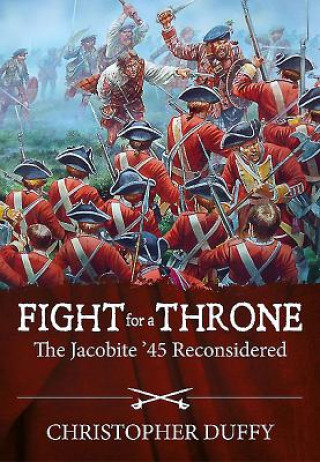
Kod: 09257861
Fight for a Throne
Autor Christopher Duffy
The bid of Bonnie Prince Charlie and his Jacobites for the throne of Britain has never lost its grip on the popular imagination. In July 1745 he and a tiny group of companions arrived in Scotland. They came unannounced and unsuppo ... więcej
- Język:
 Angielski
Angielski - Oprawa: Twarda
- Liczba stron: 680
Wydawca: Helion & Company, 2015
- Więcej informacji o książce

447.57 zł
Dostępność:
50 % szansa Otrzymaliśmy informację, że książka może być ponownie dostępna. Na podstawie państwa zamówienia, postaramy się książkę sprowadzić w terminie do 6 tygodni. Gwarancja pełnego zwrotu pieniędzy, jeśli książka nie zostanie zabezpieczona.
Otrzymaliśmy informację, że książka może być ponownie dostępna. Na podstawie państwa zamówienia, postaramy się książkę sprowadzić w terminie do 6 tygodni. Gwarancja pełnego zwrotu pieniędzy, jeśli książka nie zostanie zabezpieczona.Przeszukamy cały świat
Zobacz książki o podobnej tematyce
-

Illustrated Encyclopedia of the Uniforms of the Roman World: A Detailed Study of the Armies of Rome and Their Enemies, Including the Etruscans, Sam
93.17 zł -23 % -

Illustrated Encyclopedia of Uniforms of World War I
93.17 zł -23 % -
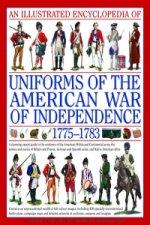
Illustrated Encyclopedia of Uniforms of the American War of Independence
93.17 zł -23 % -

Illustrated Encyclopedia of Military Uniforms of the 19th Century
93.17 zł -23 % -

On War
24.57 zł -23 % -
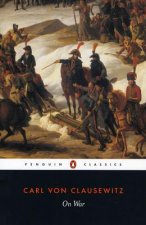
On War
61.14 zł -23 % -

On War
117.05 zł -

Washington's Spies
77.56 zł -5 % -

General History of the Pyrates
125.51 zł -4 % -

Ottoman Army of the Napoleonic Wars, 1798-1815
162.08 zł -23 % -
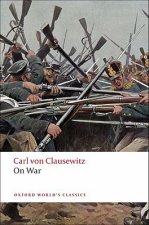
On War
47.34 zł -23 % -

Polish Armies of the Partitions 1770-94
67.58 zł -15 % -
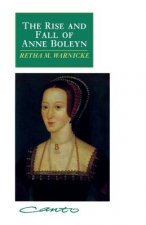
Rise and Fall of Anne Boleyn
133.77 zł -4 % -

By Force of Arms
230.58 zł -23 % -

Honours of War
67.58 zł -15 % -
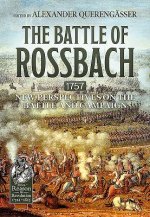
Battle of Rossbach 1757
138.91 zł -23 % -

Spanish-American Revolutions, 1808-26
176.28 zł -
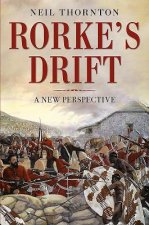
Rorke's Drift
93.17 zł -23 % -

Fiscal-Military State in Eighteenth-Century Europe
838.23 zł -
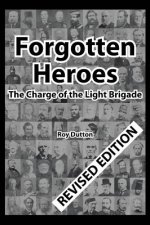
Forgotten Heroes
244.48 zł -

Napoleon's Swiss Troops
67.58 zł -15 %
Bon podarunkowy: Radość gwarantowana
- Podaruj bon o dowolnej wartości, a my się zajmiemy resztą.
- Bon podarunkowy dotyczy całej naszej oferty.
- Możesz wydrukować elektroniczny bon z e-maila a następnie przekazać go obdarowanemu.
- Ważność bonu wynosi 12 miesięcy od daty wystawienia.
Powiadomienie o dostępności
Wpisz swój adres e-mail, aby otrzymać od nas powiadomienie,
gdy książka będzie dostępna. Proste, prawda?
Więcej informacji o Fight for a Throne
Za ten zakup dostaniesz 261 punkty
 Opis
Opis
The bid of Bonnie Prince Charlie and his Jacobites for the throne of Britain has never lost its grip on the popular imagination. In July 1745 he and a tiny group of companions arrived in Scotland. They came unannounced and unsupported, and yet within less than five months Charles was able to lead an army to within marching distance of London and make King George II fear for this throne. Afterwards the Highland Army continued to out-fight the redcoats in every encounter, except its very last. These were not the achievements of a backward-looking cause, and this ground-breaking study is the first to explain exactly why. Almost to the very end the Jacobites had the literal and metaphorical 'edge' over their enemies, thanks to the terror-inspiring highland charge, and also, as this book as this book is the first to reveal, to the highly-advanced organisation of their forces in 'divisions' - miniature armies that allowed them to out-manoeuvre their enemies on the strategic plane. At the same time Prince Charles made a credible bid for the political and ideological high ground, an appeal based on religious toleration, and a monarchy working in cooperation with an empowered and accountable Parliament. The Prince therefore not only drew on traditional loyalties, but attracted the support of heavyweights of the new 'Enlightenment'. It all made a telling contrast to the demeaning nature of the Hanoverian government in Britain, which was mired deep in corruption. The Hanoverian politicians in London and Scotland, who had honed their skills in petty advantage, were now all of a sudden called upon to act as strategists, and they failed completely. The prime minister lost the Carlisle to the Jacobites simply because he refused to pay the cost of a courier. These revelations, which show the Jacobite enterprise of 1745 as a potent and modernising force, turn the accepted interpretation of this episode on its head. As an impartial historian Christopher Duffy deals comprehensively with the reasons for ultimate triumph of the Hanoverian cause in 1746. Due credit is given to the Duke of Cumberland. He was an inspirational leader. He had the measure of the strength and weaknesses of the British Army, and he evolved the cautious and systematic kind of war that helped to bring him victory at Culloden on 16 April 1746. Conversely the Jacobites had been dogged even from the start of the Rising by their failure to reconcile two perspectives - that of Prince Charles, who was striving to reclaim the crown for the Stuarts in London, and the narrower visions of the more overtly Scottish party. It led to the contentious turn-around of the Jacobites at Derby, and finally and fatally to the dispersal and exhaustion of the Highland Army before Culloden. These assertions rest on the recent advances by other historians in 'Jacobite studies', and the author's continuing researches in to unexploited primary sources. His documentary finds extend to the autobiography of Lieutenant-General Hawley, Lord George Murray's explanations of key episodes of the Rising (and his detailed accompanying map of Culloden), the material collected by the restored Whig administration in Edinburgh towards an 'official' history of the Rising, the Reverend John Home's detailed questioning of survivors, and much more. Lastly Duffy returns to his starting point, the enduring appeal of the '45 to our instincts. He concludes that it comes from the elusive nature of the episode, recognised by tough-minded men of the time as something 'epick' and 'miraculous' - literally beyond rational explanation, and capable ever since of being re-fashioned according to our imaginings.
 Szczegóły książki
Szczegóły książki
Kategoria Książki po angielsku Humanities History Military history
447.57 zł
- Pełny tytuł: Fight for a Throne
- Podtytuł: The Jacobite '45 Reconsidered
- Autor: Christopher Duffy
- Język:
 Angielski
Angielski - Oprawa: Twarda
- Liczba stron: 680
- EAN: 9781910777053
- ISBN: 1910777056
- ID: 09257861
- Wydawca: Helion & Company
- Waga: 1304 g
- Wymiary: 185 × 255 × 319 mm
- Data wydania: 13. October 2015
Ulubione w innej kategorii
-

With the Old Breed
45.62 zł -5 % -

SS Dirlewanger Brigade
73.33 zł -6 % -

Mediterranean Air War, 1940-1945
230.88 zł -23 % -

Wars of the Roses
81.69 zł -5 % -

SAS in Occupied France
116.24 zł -23 % -
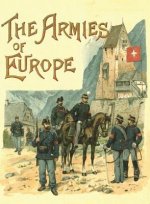
Armies of Europe Illustrated
122.89 zł -

Soviet Cruise Missile Submarines of the Cold War
85.62 zł -5 % -

Black Prince And The Sea Devils
178.50 zł -

Truth About The Wunderwaffe
217.89 zł -

Kill Anything That Moves
93.58 zł -5 % -

Helmet for my Pillow
61.14 zł -23 % -

Forgotten Highlander
61.14 zł -23 % -

TM 9-803 Willys-Overland MB and Ford Model GPW Jeep Technical Manual
93.37 zł -5 % -

With the Old Breed
70.41 zł -23 % -

Sleepwalkers
87.93 zł -14 % -

Panzerkampfwagen Tiger Ausf.B
106.27 zł -13 % -

D-Day
47.34 zł -23 % -

War that Ended Peace
47.04 zł -14 % -

Second World War
136.29 zł -9 % -

Band Of Brothers
43.41 zł -15 % -

American Sniper
51.87 zł -23 % -

Battles Map by Map
137.50 zł -14 % -

Brothers in Battle, Best of Friends
77.56 zł -5 % -

Eastern Approaches
61.14 zł -23 % -

Citizen Soldiers
61.14 zł -23 % -

Fate is the Hunter
51.87 zł -23 % -

Shattered Sword
145.35 zł -5 % -

Panzerjager on the Battlefield
120.67 zł -23 % -

Fairbairn-Sykes Commando Dagger
74.84 zł -23 % -

Templars
56.50 zł -23 % -

Bravo Two Zero
52.37 zł -15 % -

Us Forces in Vietnam 1968 - 1975
101.63 zł -4 % -

Military History Book
139.01 zł -23 % -

Lost Victories
102.34 zł -23 % -

The Second World War
78.97 zł -14 % -

Hirohito and the Making of Modern Japan
70.41 zł -23 % -

T-34 on the Battlefield. Volume 2
120.67 zł -23 % -

Reaper
79.67 zł -12 % -

RAF Battle of Britain Fighter Pilots' Kitbag
79.47 zł -23 % -
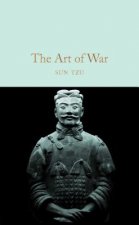
Art of War
52.37 zł -15 % -

Pacific Crucible
105.76 zł -4 % -

Soldaten - On Fighting, Killing and Dying
47.34 zł -23 % -

1914-1918
88.74 zł -23 % -

SS Charlemagne
61.14 zł -23 % -

Between Giants
79.47 zł -23 % -

German Panzers 1914-18
67.58 zł -15 % -

War Like No Other
81.49 zł -11 % -

Hommes et ouvrages de la ligne Maginot, Tome 4
221.31 zł -

Winter Uniforms of the German Army
359.83 zł -4 %
zadowolonych klientów
Od roku 2008 obsłużyliśmy wielu miłośników książek, ale dla nas każdy był tym wyjątkowym.
Copyright! ©2008-24 libristo.pl Wszelkie prawa zastrzeżonePrywatnieCookies


 21 milionów książek
21 milionów książek Dostawa 10.99 zł
Dostawa 10.99 zł (32) 444 93 66 (8-15.30h)
(32) 444 93 66 (8-15.30h)